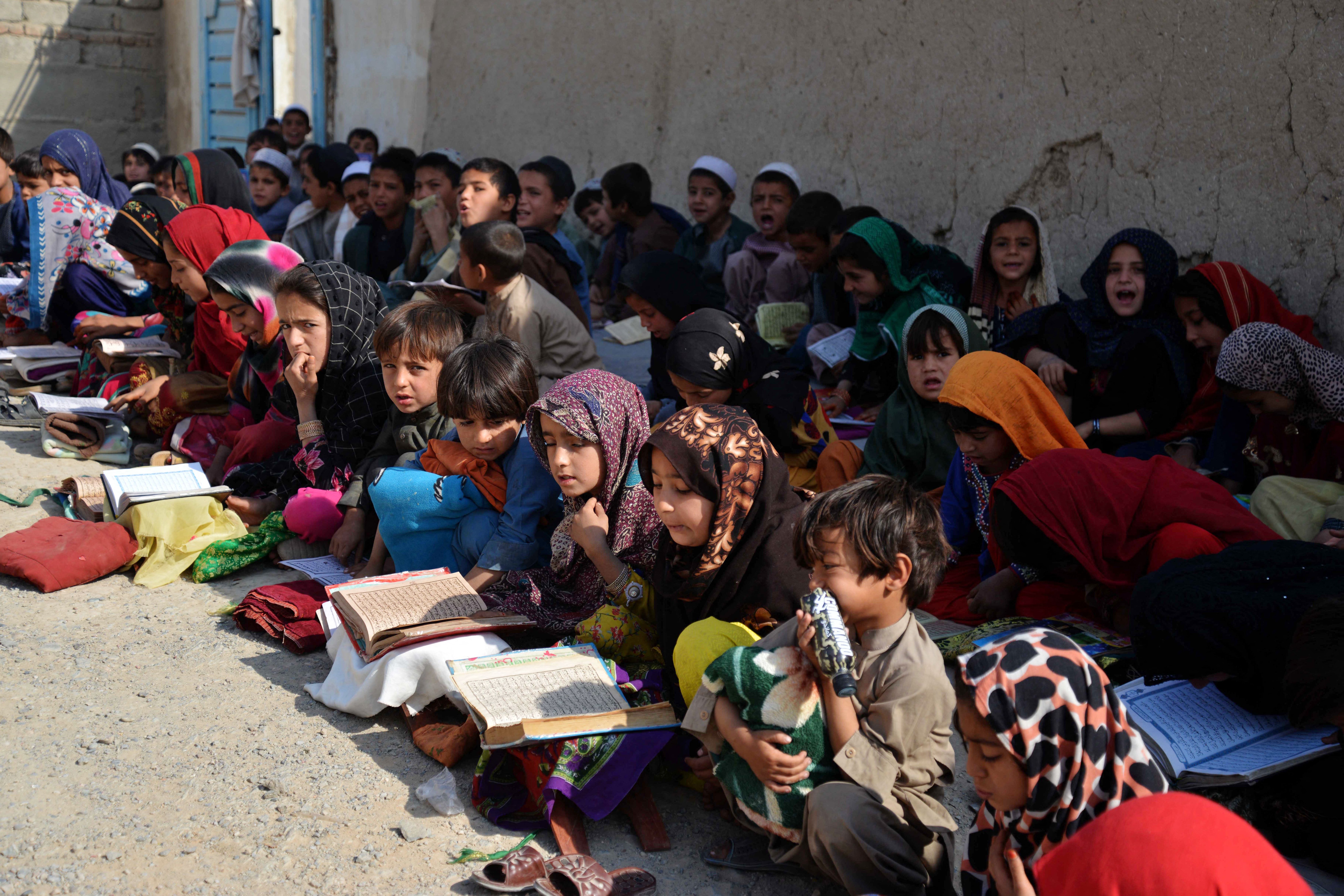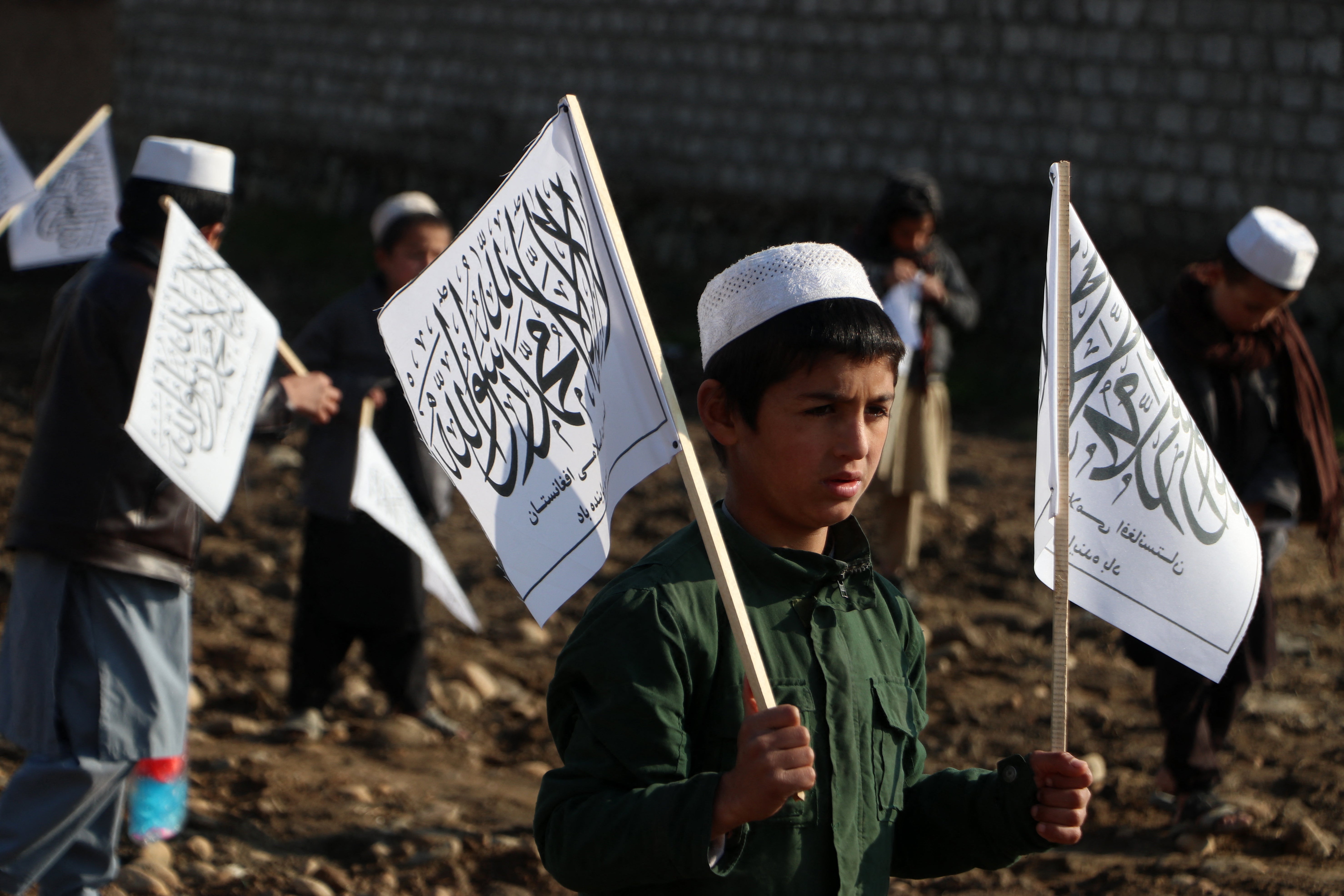Afghan women accuse UN envoy of normalising Taliban education ban in open letter
Taliban is using people’s religious beliefs for military purposes, women tell UN chief

Your support helps us to tell the story
From reproductive rights to climate change to Big Tech, The Independent is on the ground when the story is developing. Whether it's investigating the financials of Elon Musk's pro-Trump PAC or producing our latest documentary, 'The A Word', which shines a light on the American women fighting for reproductive rights, we know how important it is to parse out the facts from the messaging.
At such a critical moment in US history, we need reporters on the ground. Your donation allows us to keep sending journalists to speak to both sides of the story.
The Independent is trusted by Americans across the entire political spectrum. And unlike many other quality news outlets, we choose not to lock Americans out of our reporting and analysis with paywalls. We believe quality journalism should be available to everyone, paid for by those who can afford it.
Your support makes all the difference.Over 70 Afghan women have written an open letter to United Nations chief Antonio Guterres against the UN’s special envoy in Afghanistan, Roza Otunbayeva’s latest remarks on education of Afghan girls in Islamic madrassas.
Ms Otunbayeva, head of the UN’s assistance mission in Afghanistan, told the UN Security Council last month that there is “more and more anecdotal evidence that girls could study at the Islamic schools known as madrassas” run by the Taliban, without any proof of progressive education in these centres.
But Ms Otunbayeva said it wasn’t clear what constituted a madrassa, if there was a standardised curriculum that allowed modern education subjects, and how many girls were able to study in the schools.
“Such statements are utterly irresponsible and perceived as normalising the education ban for girls in Afghanistan under the Taliban. For anyone familiar with the Afghan context, madrassa and formal school systems cannot be compatible for many reasons,” the letter to Mr Guterres, seen by The Independent, read. Madrassas are Islamic schools that also often provide free religious education, shelter and food to students.
The coalition of Afghan women, activists, former judges, diplomats, and human rights organisations, have rejected the UN envoy’s position and statements at the Security Council, stating that the top leader was trying to normalise the Taliban’s education ban against women and girls, among other human rights violations.
“Since the Taliban returned in August 2021, they have formed hundreds of new religious madrassas across Afghanistan, not just for school-age boys and girls but adult men and women, where there is a genuine fear of mass radicalisation of youth,” the letter added.
“The Taliban are an ideological militant group that uses religion and people’s religious beliefs for their political and military purposes,” the letter read.

It pointed out that the formal education curriculum in Afghanistan was “consistent with both religious education as well as modern subjects including science, mathematics, literature, foreign languages, history, and geography”. Whereas in the Taliban’s madrassas where students are taught predominantly religious studies.
“Furthermore, there are multiple reports and research that show that people who attend Taliban-controlled madrassas are radicalised and even learning [about] militancy and insurgency,” the open letter to the UN chief said.
“Modern education is key for the advancement of a country, particularly for women’s active participation in social, political economic sphere,” the letter said, adding that any absence of a formal education system and deprivation of girls from advancing will have a serious impact on Afghanistan.
The women, representing millions of Afghan girls and women under the Taliban regime, have asked the UN secretary general to urge the Taliban to reverse policies responsible for the deteriorating human rights situation, particularly for women and girls, and hold them accountable for systematic violations.
One of the five demands to the secretary general also asks the UN to push the Taliban to “stop spreading extremist ideologies including in the education system and madrassas”, stating that the implications of such policies are devastating for Afghanistan and beyond.
The UN has refused to recognise the Taliban, an Islamist militant group, as the legitimate government of Afghanistan since its fighters seized power by force in August 2021.
The Taliban took control of Kabul by ousting a democratically elected government after the withdrawal of Western allied forces. Since taking power, the Taliban regime has banned women from schools, workplaces and public recreational facilities, provoking international condemnation. Madrassas are one of the few options for girls after sixth grade to receive any kind of education.
Afghanistan under the Taliban is the only country on earth that has stopped girls and women from attending secondary school and universities, a ban that has been in place for more than two years and is expected to have wide-reaching implications for the country’s society and economy if it persists.
Join our commenting forum
Join thought-provoking conversations, follow other Independent readers and see their replies
Comments